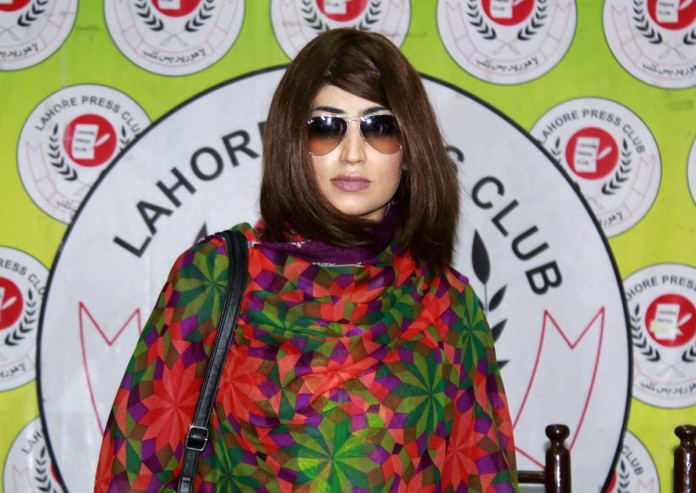A Pakistani court has charged the brother of a slain social media star with her murder, the final step before a trial begins in one of the country’s highest-profile “honour killings”.
Model Qandeel Baloch, who shot to fame for her provocative selfies that polarised the conservative Muslim country, was strangled in July by her brother Muhammad Waseem.
He said she had brought shame on the family and confessed to his crime in a press conference after his arrest.
The model was sexually demeaned by her detractors. But fans praised her for daring to challenge social norms by appearing in videos that by Western standards would appear tame.
Waseem was produced before a court in the central city of Multan on Monday along with his cousin Haq Nawaz whom police deemed to be an accomplice, though the nature of his involvement was unclear.
A second indicted accomplice, taxi driver Abdul Basit, is on bail.
“Judge Muhammad Saeed Raza indicted all the three men and adjourned the hearing until December 8,” a government prosecutor told AFP on condition of anonymity Tuesday, because he is not authorised to speak to media.
He added the accused had pleaded not guilty.
“The court also asked police to submit a complete list of charges against all the accused on the next date of hearing,” the prosecutor added.
Some of Baloch’s more notorious acts included offering to perform a striptease for the Pakistani cricket team, and donning a plunging scarlet dress on Valentine’s Day.
She also posed for selfies with a high-profile mullah in an incident that saw him swiftly rebuked by the religious affairs ministry.
Waseem told a press conference in July he was not remorseful over what he did, calling his sister’s behaviour “intolerable”.
Her murder reignited calls for action against so-called “honour killings”, in which a victim is killed by a close relative – who could subsequently be pardoned by another family member under Pakistan law.
In October parliament passed a law aimed at removing the ability to forgive “honour” killers. But critics contend some loopholes still exist.






